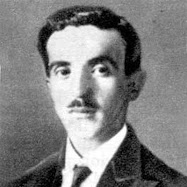 Behind The Sun – by Walter Salles
Behind The Sun – by Walter SallesBehind the Sun (Portuguese title: Abril Despedaçado) is a 2001 Golden Globe-nominated Brazilian film.
Its original Portuguese title means Shattered April, and it is based on the novel of the same name (original Albanian title: Prill i Thyer) written by the Albanian writer Ismail Kadare, about the honor culture (Gjakmarje) in the North of Albania.
The director of the movie, Walter Salles, has brilliantly adapted the film from the northern mountains of Albania to a setting in 1910 Brazil.
Plot Summary:
In the Brazilian badlands of 1910, two families are locked in a deadly feud. Tonho, the middle son of the Breves family, is ordered by his father to avenge the death of his older brother, the victim of an age-old feud between families over the ownership of the land. If he carries out his mission, Tonho knows that his life will be divided in two: the twenty years he has already lived, and the short time he has left to live. He will then probably be killed by a member of the rival family, as dictated by the code of vengeance of the region. Distressed by prospect of death and urged on by his younger brother Pacu, Tonho begins to question the logic of the tradition of violence. Just when it seems there is no way out, Tonho’s life is changed when he meets a young girl who is part of a performing circus passing in his town
 Broken April by Ismail Kadare
Broken April by Ismail KadareAs mentioned bove, Behind the Sun is based on the Albanian book “Broken April” or “Prilli I Thyer” in Albanian.
It is a novel by award winning Albanian author Ismail Kadare. Published in 1978, the book explores one of Kadare's recurring themes; how the past affects the present.
The story tells of Gjorg Berisha, a 26-year-old Albanian man living on the high mountains of Albania. He is forced to commit a murder under the laws of the Kanun, a 15th Century Albanian Code of Laws. As a result of this killing, his own death is sealed; he is to be killed by a member of the opposing family.
Broken April was lauded by reviewers upon its release. The New York Times described it as "written with masterly simplicity in a bardic style", whilst Wall Street Journal declared Kadare was "one of the most compelling novelists now writing in any language."
Kadare’s works have been translated into a dozen languages, and in France, those books have been bestsellers.








http://www.youtube.com/watch?v=vo6tIbjJRs4
ReplyDeleteTa shof apo e kane ne blockbuster,
I'm in the mood to watched...
Menny